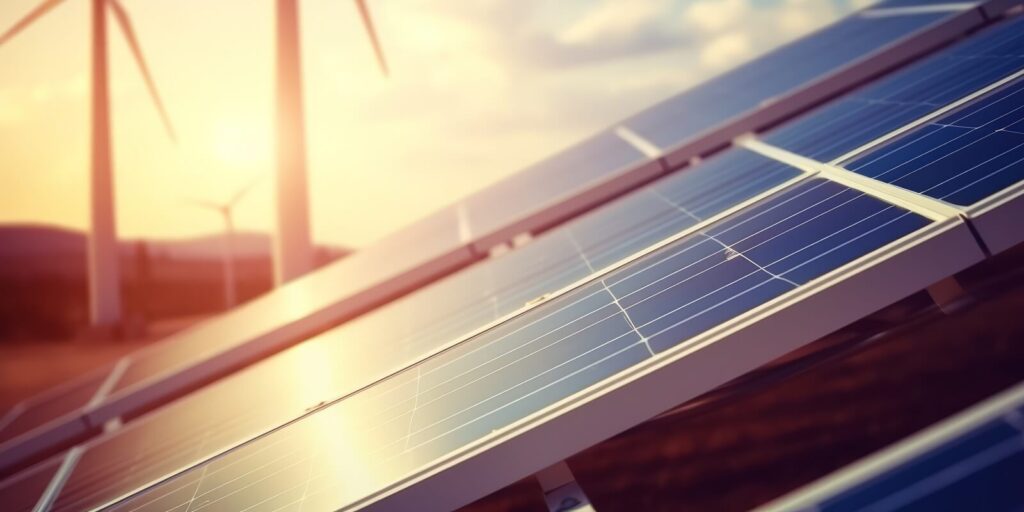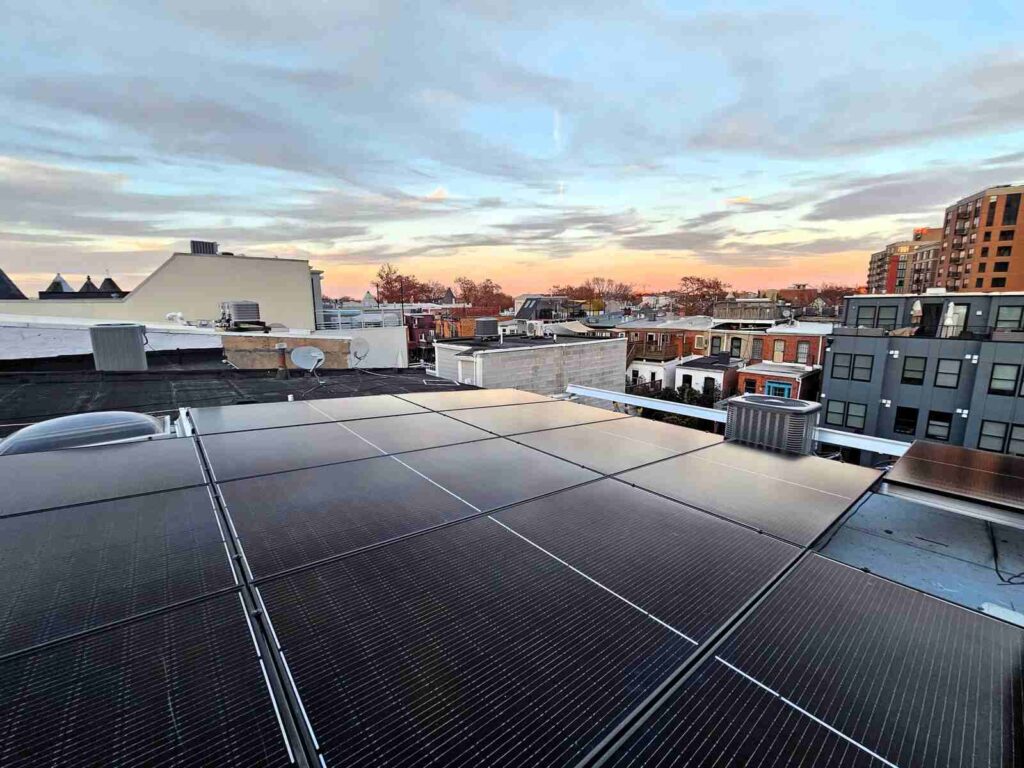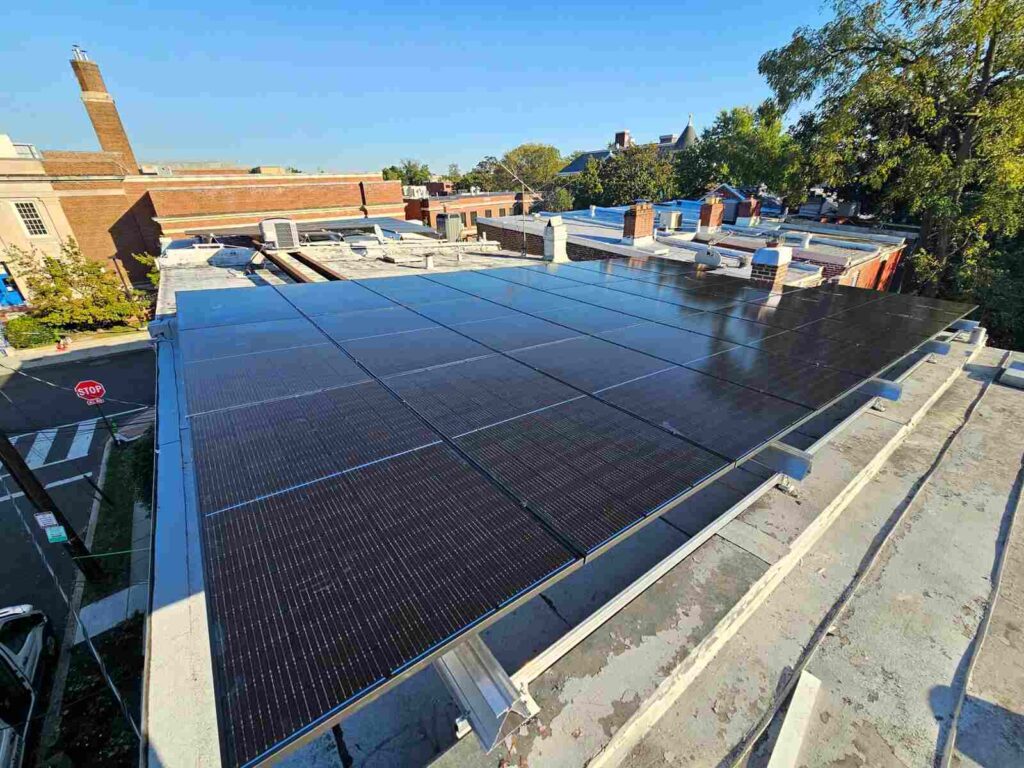
Solar is one of the more impactful choices a person can make to take charge of their role in creating a greener environment. From benefitting your community to being part of a nationwide effort to reduce fossil fuels, solar is a great sustainable choice. Solar companies in the DMV install a variety of solar solutions, primarily hybrid and on-grid solar systems. Choosing the right one for you will depend on your circumstances. Here’s what Washington DC residents need to know about off-grid, on-grid, and hybrid solar for their homes.
What Is Off-Grid Solar?
In an off-grid solar system, the home disconnects completely from other power sources and strategically leverages solar to meet all of its power needs. These systems must include energy storage for nighttime, cloudy days, and in case of an increase in demand.
Off-grid contrasts with on-grid solar systems, which draw on solar panels but also remain connected to the grid to supplement the panels if they don’t quite meet a home’s energy needs.
Uprise doesn’t install fully off-grid systems. Our arrays connect to the grid. This enables homeowners to draw on grid power when necessary, and to participate in net metering — which means you get to sell any excess electricity your panels generate. Pepco, Dominion Energy, and BGE all participate in net metering.
Pros & Cons
An off-grid solar system can be advantageous in very specific situations, such as when grid connection is problematic or undesirable. (Think far-flung, secluded locations.) However, off-grid solar is not right for everyone.
Pros:
- Powers homes in remote regions with inconsistent energy availability
- Accommodates energy fluctuations with batteries
- Works during the night
- Boosts energy independence and sustainability
Cons:
- More expensive than the average system as it requires considerably more equipment
- Power supply is capped by the capabilities of the system
- Cannot sell any excess power back to the grid with net metering

How On-Grid Systems Function
As mentioned above, an on-grid solar array powers a home that remains connected to the grid. You’ll receive power first from your solar panels, and then from the grid if you need extra power.
Pros & Cons
Like every type of solar, on-grid systems offer some advantages and some elements to keep in mind.
Pros:
- No downtime in energy availability, because the home can pull from the grid if necessary
- Reduces grid reliance by utilizing clean energy whenever possible
- Can produce and sell excess energy during peak hours
Cons:
- Homes still might use some non-green energy when necessary
- Without a battery, a home will be vulnerable to power outages
- Solar panels must be turned off in case of an outage to protect the safety of workers fixing power lines
What Are Hybrid Solar Systems?
Hybrid solar systems are a great option for DC homeowners who want to reduce grid reliance but still value the reliability of a backup solution.
In this setup, solar panels and the battery system provide the majority of electricity. The smart system will seamlessly switch to and from grid power when it is most advantageous for the homeowner. Hybrid systems are very similar to on-grid systems, but include batteries. In the same way an on-grid solar system switches to grid power as soon as the panels aren’t producing enough energy for the home’s needs, a hybrid system draws from a battery backup. However, the home still has access to the grid if solar plus the battery isn’t sufficient for a resident’s power needs.
Pros & Cons
As with any solar solution, a hybrid solar arrangement offers both advantages and disadvantages:
Pros:
- Programmable to suit the usage patterns and energy needs of the household, prioritizing the use of renewable energy when possible
- Allows homeowners to leverage net metering to sell excess electricity
- Reduces grid reliance with battery storage, without completely eliminating connection to an additional backup power source
- Adjustable to take advantage of off-peak energy pricing, if your utility prices electricity differently at different times of day
- Requires less equipment than a fully off-grid setup
Cons:
- Can be more costly than on-grid systems because of the need for batteries
- During an outage, you may not be able to power as many devices, like electric cars or machines that rapidly drain battery storage
- Like on-grid systems, hybrid solar systems must shut down during an outage to protect utility workers

Explore Hybrid And On-Grid Solar Options In DC
Washington, DC is home to visionaries in the green energy space, and you can be one too by installing solar on your home! Your energy usage patterns and budget will primarily determine which solution is right for you. We’d be delighted to help you explore these options. Call Uprise at (202) 280-2285 or fill out our form online to learn more.
